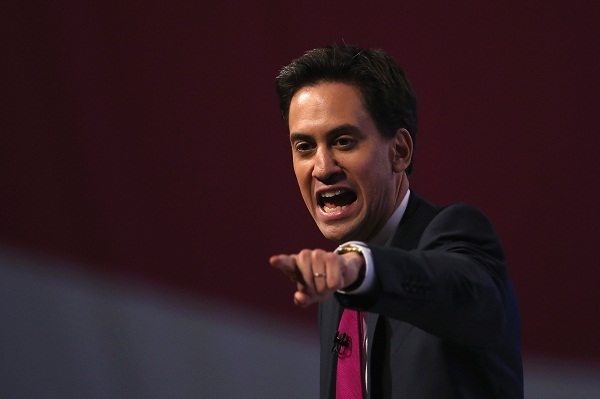Ed Miliband, everyone seems to agree, has had a good few weeks, even months. Everyone agrees on this even though Labour’s position in the polls is not significantly better now than it was before the summer.
The Labour leader, and again on this everyone seems to agree, has been setting the agenda. David Cameron has been forced to respond to whatever Miliband has been talking about. From Syria to the Daily Mail to the cost of living it’s been the leader of the opposition who has seized the initiative. As a result, Miliband looks stronger; Cameron somewhat diminished.
That, at least, is the conventional wisdom and, as is so often the case, the conventional wisdom is not wholly nonsense. It has certainly become more difficult to make stick the charge that Miliband is a hopeless wet fish.
Nevertheless there is a difference between getting a good press and convincing the public. A considerable difference, in fact. The press loves bandwagons and is constantly distracted by the latest, new, exciting, shiny thing. The public takes longer to be persuaded, if indeed it can be persuaded at all.
So I wonder if Miliband’s summer has been quite as successful as many people would have you think. Labour List have published the results of a Survation poll on the “cost of living crisis”. One question, above all, produced some interesting results:
Which of the following policies do you think will do more to help consumers with the cost of their energy bills?
Forcing companies to automatically put consumers on the cheapest deal they have available, and reduce the number of different deals they have on offer to simplify things for consumers.
or:
Freezing the cost of energy bills by law for two years, to prevent any further price increases, and reforming the way the energy market operates to increase transparency and competition.
51.8% chose the first policy, only 37.9% the second. In other words, Labour’s headline policy from conference season is less popular than the policy preferred by an unpopular coalition government.
The Tory (ok, Tory-led) policy is the preferred option amongst voters of every socio-economic class and in every part of Britain except the north of England.
It is, of course, only one data point. Nevertheless it is a telling one. Because it suggests the public takes a more sceptical view of populist and simplistic policy solutions to complex problems than might commonly be assumed.
Moreover, this result – and no fewer than 38% of voters who intend to vote Labour say they prefer the government policy – suggests that Miliband has not yet made the leap from credible leader of the opposition to credible Prime Minister in waiting. And that is, as Neil Kinnock might remind him, a Beamonesque leap.
I suspect the public can recognise a gimmick when it is dangled before them and they have concluded that Miliband’s energy-price-freeze gimmick is indeed a gimmick. And they are unimpressed by it. They identify it, correctly, as a pose not a policy. Poses are good for winning headlines; they are less useful for winning votes.
So, again with the caveat that this is a single data point, I suspect this is a useful poll (and not just because it leads to conclusions I happen to find attractive). Useful because it reminds us that Ed Miliband is still a work-in-progress. The Labour leader may be able to identify problems; it is much less obvious that he has identified solutions.
Energy policy, of course, is only one small example of this. Much the same, I think, could be said of Labour’s economic policy. And that’s something that Labour partisans should probably find worrying.







Comments